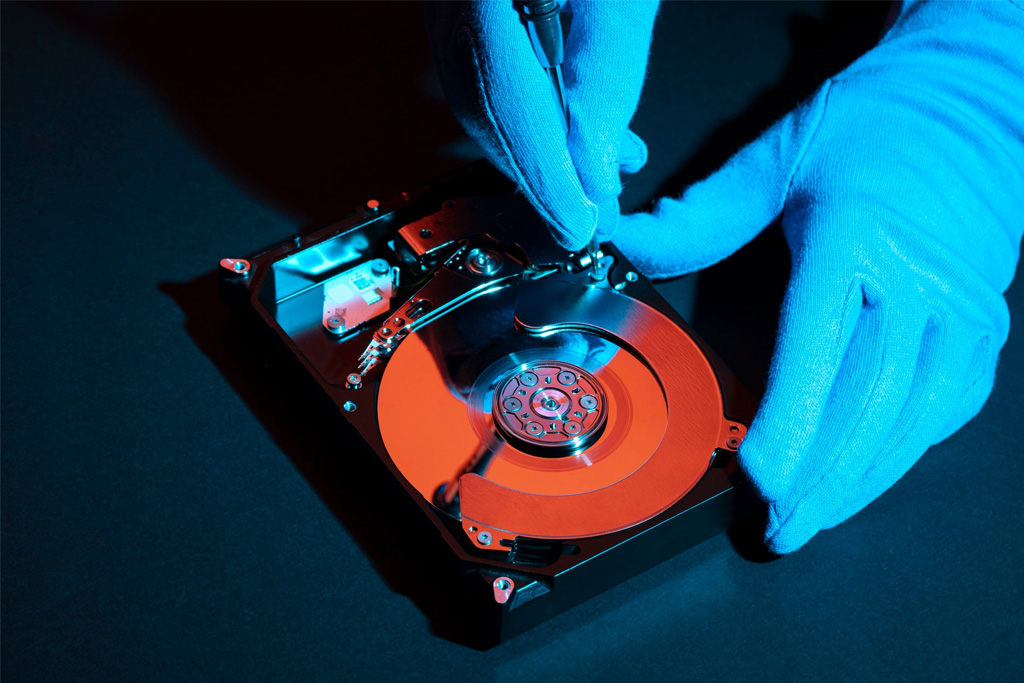Your hard drive may be damaged if you experience the following common signs. Bad sectors may accumulate over time. Unusual noises may occur. The read/write headstock may have failed. You may hear a clicking or buzzing noise. These are all signs of a failed hard drive. Using the device will only cause further damage, so you should seek professional help as soon as possible. Continue reading for a comprehensive guide to identifying these warning signs.
Accumulated bad sectors
An accumulated number of bad sectors is one of the first warning signs that your hard drive is damaged. This is because the disk’s data will be corrupted if the sectors are reallocated. Fortunately, you can detect bad sectors early. Bad sectors are large areas of the disk where information is lost. If these sectors accumulate rapidly, it could mean your hard drive is failing.


If a few bad sectors are found, it may be time to replace your hard drive. The number is usually not that high, but you should take extra precautions if the bad sectors are growing rapidly. Even if they do not causing your system to crash, they can affect your hard drive’s dependability. Fortunately, there are ways to repair these bad sectors. First of all, you can use a disk utility to determine whether there are any bad sectors.
A clicking or buzzing sound coming from your hard drive is an indication of a damaged hard disk. This sound comes from a malfunction of the read/write head.
Clicking or buzzing
A clicking or buzzing sound coming from your hard drive is an indication of a damaged hard disk. This sound comes from a malfunction of the read/write head. A damaged disc platter causes the actuator arm to swing back and forth repeatedly. When the disc platter makes a clicking sound, the hard drive may be experiencing mechanical failure. If this happens, you should immediately take action to repair the drive.
Depending on the noise caused, you can try to restore the data using diagnostic software. If the noise continues, you will need to replace the hard drive. In some cases, the failure of S.M.A.R.T. monitoring can also cause a hard drive to fail. To avoid losing important data, diagnosing the issue as soon as possible is essential. If the noise is not caused by physical damage, the only solution is to back up your system and replace the hard drive.

Unusual noises
A clicking sound from a hard drive is not the same as beeping. While it’s normal for hard drives to make noise, it’s important to know that clicking indicates a damaged hard drive. A power surge can damage this component, making the hard drive malfunction. If you hear this noise repeatedly, you should investigate the problem. You can try to identify the source of the clicking sound before losing important data.
The noise may come from the actuator, which swings back and forth to read the data stored on a hard drive. If the actuator makes a clicking noise, the drive might have a head stack problem or be malfunctioning. In such a case, the hard drive will restart again, making a clicking noise. Once you have identified the source of the clicking sound, it’s time to diagnose the issue.
Failure of the read/write head stack
A failing read/write head stack is one of the most common signs of a damaged hard drive. This problem occurs when the head’s positioning is off, causing it to hit the platters without the necessary momentum. The result is that the drive cannot recognize the disk because it does not match up with the rest of the area on the disk. Physical damage to the headstack can also cause the head slider and suspension arm to bend. Physical damage to the heads will also seriously damage the platter’s surface.
The failure of the read/write headstack also results in the drive making an annoying clicking noise. The clicking sound is caused by the actuator arm bumping against the side of the magnetic head. If the read/write headstack fails, the hard drive will not be able to calibrate itself, resulting in alignment issues and clicking noises. If this happens, it is time to replace the hard drive.
Data Recovery Services
Mernda, South Morang, Wollert, Mill Park, Epping
Re:bytes can offer highly cost effective data recovery services in Mernda, South Morang, Wollert, Mill Park and Epping. Our professional services include taking out your hard drive from laptop or desktop, recovery of data and secure delivery of the same. A thorough assessment with approximate recovery charges are submitted and data is recovered after taking necessary approvals.

